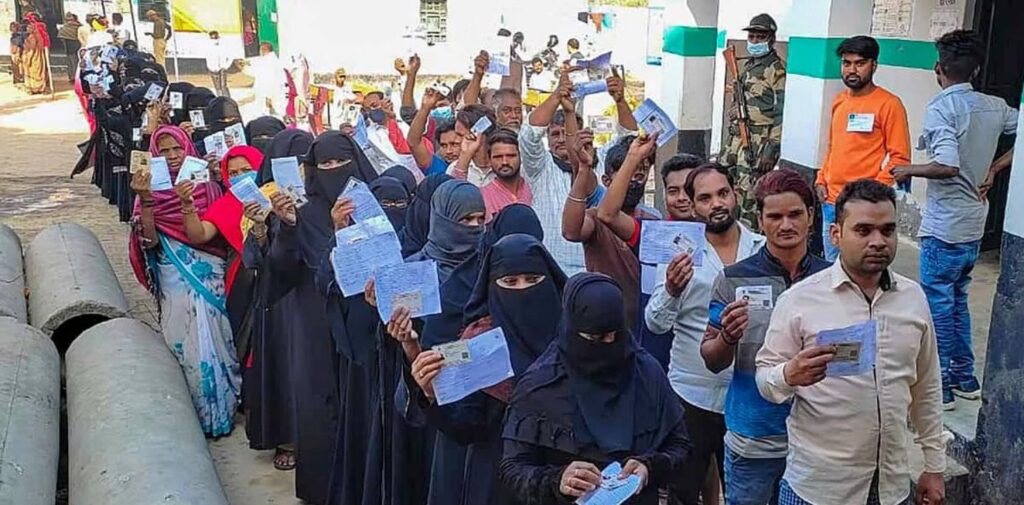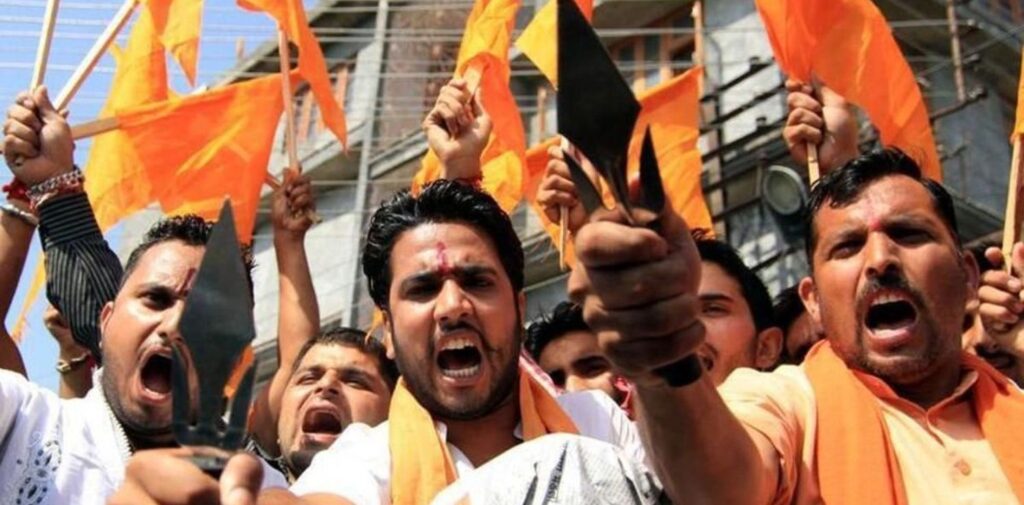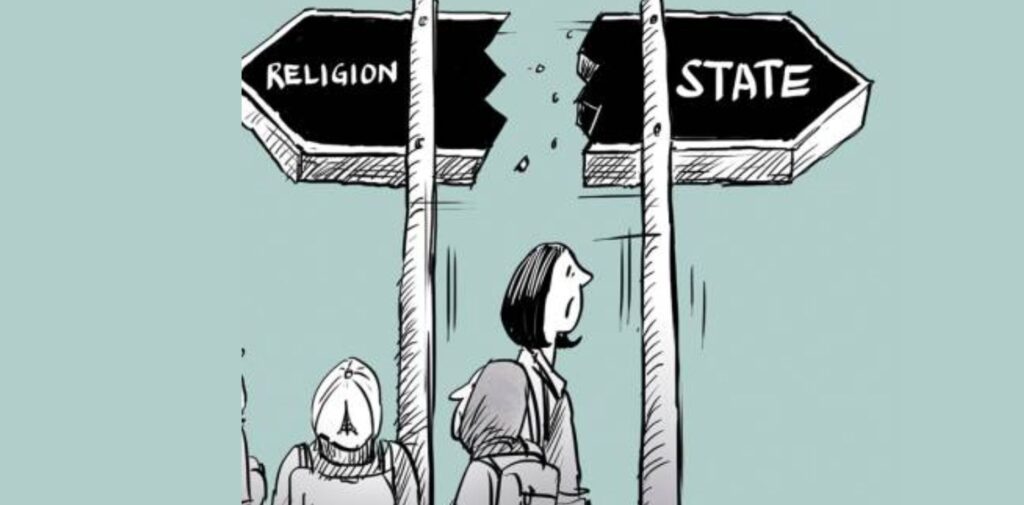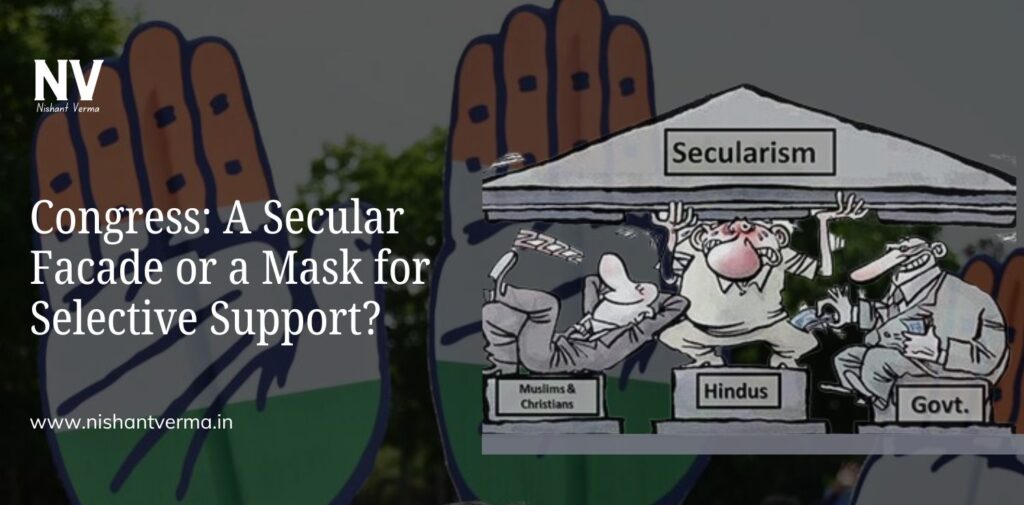The Congress Party in India, once hailed as the guardian of secularism, is increasingly accused of playing a selective game with religious communities, primarily Muslims, at the cost of alienating the Hindu majority. Despite claiming to uphold secularism, critics argue that they often panders to minority groups for political gains. This hypocrisy has led to widespread dissatisfaction, especially among Hindus, who feel marginalized by a party that was once synonymous with inclusivity. The issue raises a fundamental question: Is Congress truly a secular party, or has it weaponized secularism to serve its own political interests?
Secularism or Appeasement?
India’s constitution is grounded in the idea of secularism, a principle that mandates equal treatment of all religions by the state. However, under their rule, secularism has often been distorted into appeasement. The party’s tendency to support policies favoring Muslims over Hindus has sparked widespread controversy. For instance, the Shah Bano case in the 1980s is a glaring example of Congress’ willingness to override court rulings to appease conservative Muslim factions, even at the expense of gender justice.
Moreover, Congress’ reluctance to support the Uniform Civil Code—a policy that would standardize laws for all citizens, irrespective of religion—further underscores its selective secularism. Despite the Constitution advocating for such a code, They has consistently opposed it under the guise of protecting minority rights. However, this resistance often appears as a way to secure Muslim votes rather than a genuine concern for secular values.
Congress and the Muslim Vote Bank
Critics argue that Congress has transformed secularism into a tool for securing Muslim votes, often at the expense of Hindus. This vote-bank politics has been evident in the party’s electoral strategies, where Muslims are seen as a crucial demographic to maintain power. Rahul Gandhi’s recent endorsement of the Indian Union Muslim League (IUML) as a secular party is a case in point. The IUML, historically linked to the partition of India, is seen by many as a communal party. Yet, Gandhi’s remarks seem designed to appeal to Muslim voters, despite the party’s controversial past.
This pandering is not limited to rhetoric. On several occasions, They turned a blind eye to radical elements within the Muslim community while cracking down on Hindu groups. This double standard has alienated many Hindus, who feel that their religious sentiments are being sidelined for political expediency.

The Hindus’ Dilemma: Marginalized in Their Own Land?
Under Congress, many Hindus feel marginalized in the country they consider their own. The party’s policies often appear to cater disproportionately to Muslims, from educational quotas to special laws for personal matters. This has led to a growing sense of disenfranchisement among Hindus, who see themselves as victims of Congress’ selective secularism. The rise of the Bharatiya Janata Party (BJP) and its majoritarian politics is often seen as a reaction to Congress’ appeasement of minorities.
One glaring example is the Congress-led government’s handling of religious violence. While incidents involving Muslims are condemned as communal riots, those involving Hindus are often dismissed or minimized. This selective outrage has created a deep divide between the party and the Hindu community, further eroding the party’s secular credentials.

The Real Face of Congress: Secularism as a Mask
The party’s version of secularism has long been criticized for being anything but secular. Instead of fostering an environment where all religions are treated equally, they has often used secularism as a mask to justify policies that favor one community over another. This hypocrisy is most evident in its handling of religious affairs, where Muslim interests are prioritized over those of Hindus.
Rahul Gandhi’s recent defense of the IUML as a secular party is a prime example of this duplicity. The party’s history and its association with the partition make it anything but secular. Yet, Gandhi’s remarks were clearly aimed at appeasing the Muslim electorate, highlighting Congress’ reliance on minority votes for survival.

Congress at a Crossroads
As India moves forward, Congress finds itself at a crossroads. The party’s selective brand of secularism has alienated a large section of the Hindu population, leading to its decline in electoral relevance. To reclaim its position as a truly secular party, They must abandon its policy of appeasement and embrace a more inclusive approach that treats all religious communities equally.
However, given its history and recent actions, this seems unlikely. The party’s reliance on Muslim votes has entrenched it in a position where it cannot afford to alienate its minority base, even if it means sacrificing its secular ideals. This leaves the party as a shadow of its former self—a party that once stood for unity and inclusivity but now finds itself trapped in the politics of division and appeasement.
In the end, Congress’ secularism appears to be nothing more than a mask—one that hides a deeply cynical and opportunistic approach to politics. As long as this remains the case, the party’s claims to secularism will continue to ring hollow, and its relevance in the political landscape will continue to wane.




